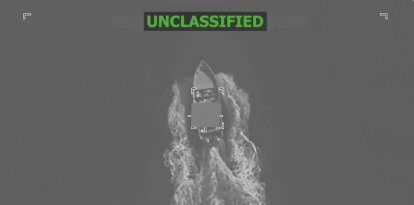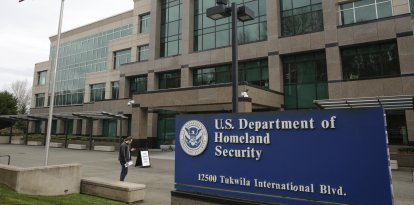Tulsi Gabbard, Trump's nominee for Director of National Intelligence, backs non-intervention in Syria
The former congresswoman stressed that her military experience and deployments to conflict zones have been instrumental in shaping her perspective on foreign policy.

Tulsi Gabbard, at an appearance.
Tulsi Gabbard, nominated by President-elect Donald Trump to be the Director of National Intelligence, expressed her support for Trump's recent statements on non-intervention in the Syrian conflict. Her stance has generated debate as she prepares to face the Senate confirmation process.
"I stand in full support and wholeheartedly agree with the statements that President Trump has made over these last few days with regards to the developments in Syria," Gabbard told a group of reporters as she arrived on Capitol Hill.
The former congresswoman stressed that her military experience and deployments to conflict zones have been instrumental in shaping her perspective on foreign policy. "My own views and experiences have been shaped by my multiple deployments and seeing firsthand the cost of war and the threat of Islamist terrorism," she said.
Gabbard added that Trump's approach to avoiding unnecessary conflict abroad reflects a leadership that prioritizes national security interests and the stability of the country, one of the main reasons she fully endorses his vision.
Trump's stance: avoid getting involved in Syria
Trump, who has repeatedly spoken out against prolonging conflicts abroad, reiterated his approach of keeping the United States out of the conflict in Syria. In recent posts on Truth Social, the president-elect described Syria as "a disaster" and stressed that "THE UNITED STATES SHOULD HAVE NOTHING TO DO WITH IT." These statements came after it was reported that Bashar Assad, leader of the Syrian regime, left the country amid advancing rebel forces.
Gabbard's trip to Syria
Gabbard's nomination has brought back criticism over her 2017 trip to Syria, when she met with Bashar Assad as part of an effort to explore diplomatic solutions to the conflict. This trip generated questioning and accusations against her, including allegations that she would have served as a Russian propaganda tool. Gabbard has categorically rejected these allegations.
Despite these controversies, Gabbard has garnered the support of more than 250 veterans who value her field experience and pragmatic approach to foreign policy challenges.
The confirmation process
The start of the Senate hearings will be key in defining Gabbard's future as the Director of National Intelligence. Her record, particularly her anti-interventionist positions and military experience, will be subjected to detailed scrutiny by lawmakers. This scrutiny will seek to determine whether she is prepared to assume a strategic role in US national security.

























